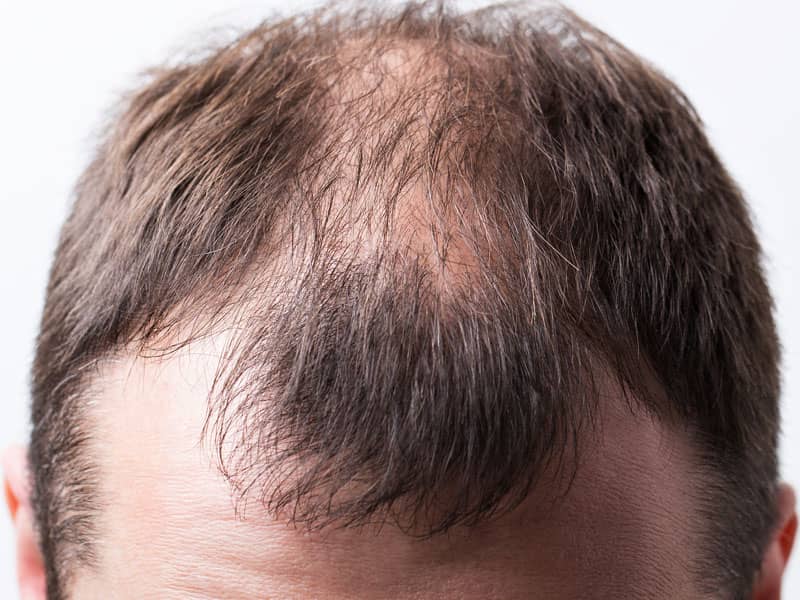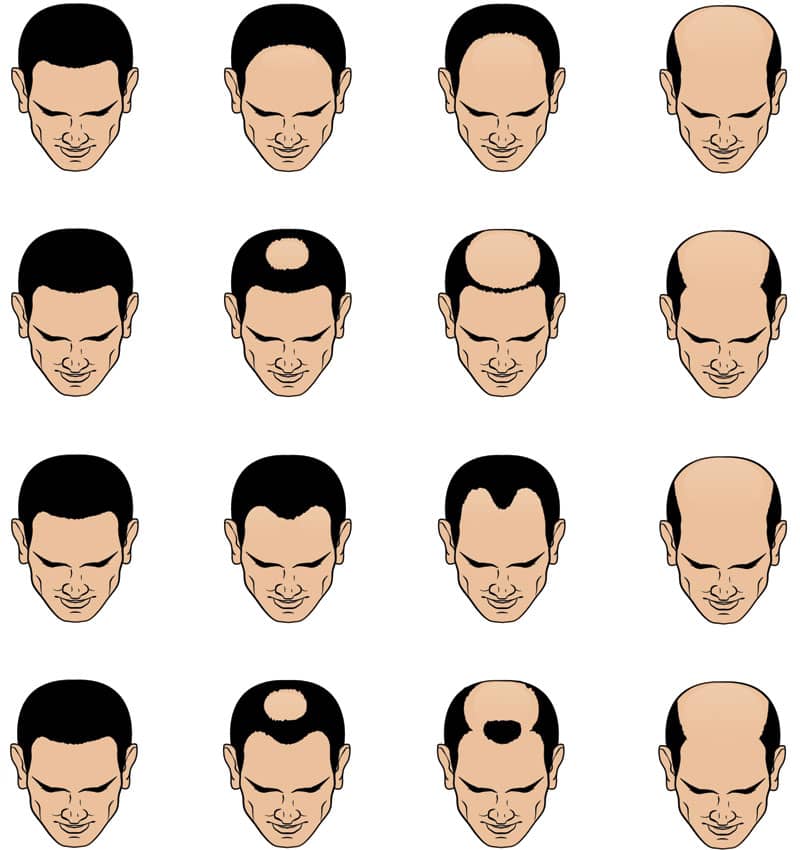Men’s Hair Loss

Androgenic alopecia or male pattern baldness (MPB) is responsible for the vast majority (94%) of hair loss in men. Whilst there are many possible reasons people lose hair (including serious disease, reaction to certain medications and in rare cases extremely stressful events), most hair loss in men can be blamed on heredity.
What male pattern baldness sufferers are actually inheriting are hair follicles with a genetic sensitivity to dihydrotestosterone (DHT). Hair follicles that are sensitive to DHT begin to miniaturise, shortening the lifespan of each hair follicle affected. Eventually, these affected follicles start producing finer hair until eventually hair growth stops completely.
Male pattern baldness is generally characterized with the onset of a receding hairline and thinning crown. Hair in these areas including the temples and mid-anterior scalp appear to be the most sensitive to DHT. This pattern eventually progresses into more apparent baldness throughout the entire top of the scalp, leaving only a rim or "horseshoe" pattern of hair remaining in the more advanced stages of MPB.
Dihydrotestosterone (DHT) is a derivative or by-product of testosterone. Testosterone converts to DHT with the aid of the enzyme Type II 5-alpha-reductace, which is held in the hair folliclea’s oil glands as well as secreting in the prostate. Whilst the entire genetic process of male pattern baldness is not completely understood, scientists do know that DHT shrinks hair follicles by binding to the androgen receptors and that when DHT is suppressed, hair follicles continue to thrive. Hair follicles that are sensitive to DHT must be exposed to the hormone for a prolonged period of time for the effected follicle to complete the miniaturization process. Today, with proper intervention this process can be slowed or even stopped if caught early enough.
Medications such as Minoxidil (Vasodilator), Azeliac Acid (DHT Inhibitor) and DHT blockers such as Finasteride and Saw Palmetto are important to start taking as early as possible once hair loss or thinning has been detected. LLLT Laser Treatment which gained FDA approval over a decade ago is used primarily to treat Androgenic Alopecia but has also been shown to be beneficial in other types of hair loss and is also widely used in conjunction with Surgery to help stop any further hair loss.
The earlier treatment is
sought the
better the
outcome for the patient…


Get in touch
with us today
to book your
free consultation
Cork (021) 4552424
Waterford (051) 325950

 Cork 2 Camden Pl, Patrick’s Bridge, Cork. T23 YTD4
Cork 2 Camden Pl, Patrick’s Bridge, Cork. T23 YTD4 
